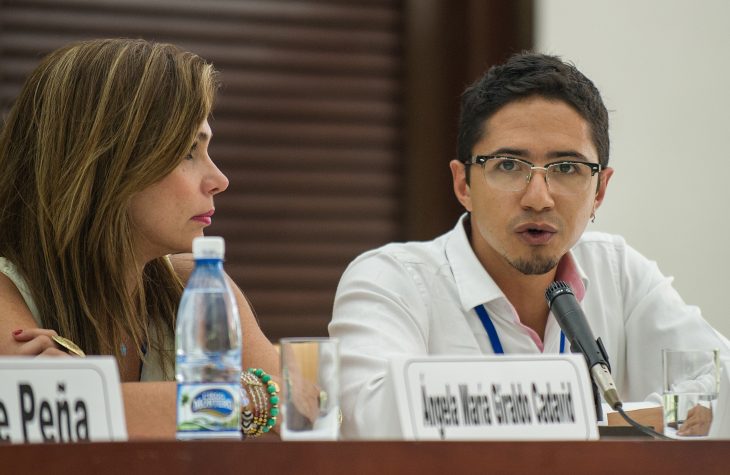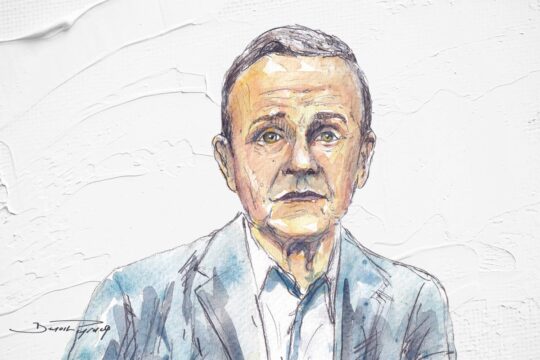José Antequera was five years old when his father was shot dead by a Colombian death squad. This young lawyer and founder of the HIJOS association, which brings together children of left wing activists assassinated since the end of the 1980s, embodies a generation that is trying to shed light on the country’s recent past. He has participated as a victim in ongoing peace talks with the Marxist FARC rebels and worked for several years to help create the Museum of Remembrance and Reconciliation in Bogota. Antequera welcomes the announcement at the beginning of June that Colombia will set up a Truth Commission at the end of the peace talks.
Why do you think setting up a Truth Commission is an important step for Colombia?
Searching for the truth is vital if we are to come out of conflict. That is what will enable us to close this chapter of our history. This Commission is all the more important because it has come out of negotiations between the different sides. That means it’s being thought of not just as a way to shed light on crimes committed by the rebels but also on those committed by the paramilitaries and agents of the State. Recognizing the responsibilities of all concerned, especially the State, is the only way to guarantee non-repetition.
Will the task be easy?
No, there will be lots of obstacles. Our main concern right now is that no-one is talking about the possibility of declassifying the archives of the secret services. Some potential evidence has already disappeared or is likely to disappear. Some files of the Administrative Department of Security (DAS, former presidential intelligence service) cannot be found. A cartel of corrupt civil servants has sold to agents implicated in murders the archives that concern them.
Another crucial factor for success will be whether the general public accepts the work of this commission. The Colombian media want to turn the current peace process into a trial of the FARC, and forget about the other people responsible. They are trying to divert civil society’s interest in these negotiations. But if we want to get the truth out, we need strong social pressure. And in Colombia, people are still in denial about a lot of things.
What things are Colombians in denial about?
People refuse, for example, to recognize that the State carried some responsibility in the unleashing and the perpetuation of the civil conflict. The authorities still claim that state crimes were perpetrated by isolated individuals. They refuse to admit that these agents were serving the interests of the government and that in killing people and driving them from their land they knew exactly what they were doing. People don’t want to recognize either that the deaths notably of some political leaders were not “collateral damage” from a war between the rebels and the State but the product of a deliberate institutional action.
If we do not accept that, and if we do not make reforms to make sure it does not happen again, we will have a lot of trouble building peace after the peace agreement is signed. We will still have the same State and security forces that aggravated the conflict by using violent methods against any kind of social demands. And on the other side there will be social movements that want to be heard. So what will happen? To break that cycle, we need to shed light on our recent past.
Is that what you would wish for your father?
Yes. There are lots of things we still don’t know. We do know in our organization that he was victim of a paramilitary-army-secret service alliance, but 26 years later we only know the name of the assassin, we do not know who was really behind his murder.
You participated as a victim in the peace talks with the rebels. What did you ask for in Havana?
I insisted on a vital point. Victims must be at the heart of this peace process, but not just to slam the rebels. Victims are the reason why this process has been set up. We need to end to the conflict so as to put an end to their suffering. We are making peace because the effects of war are not humanly acceptable.






